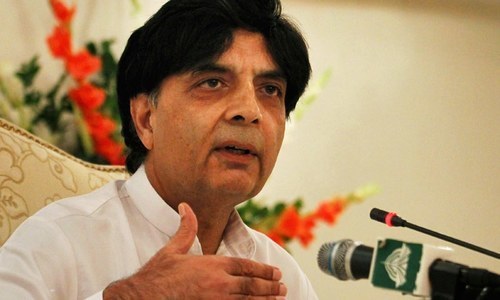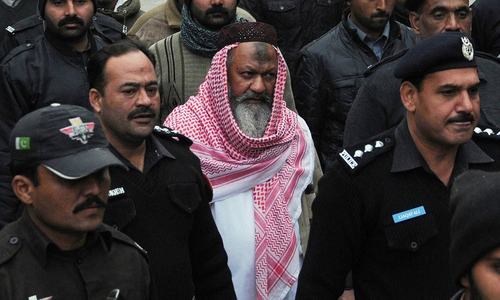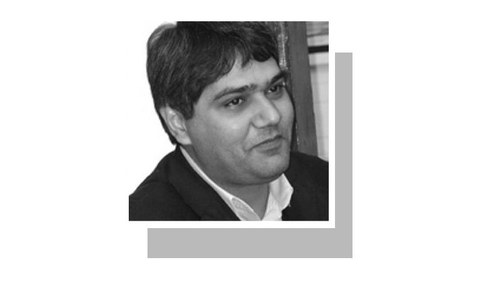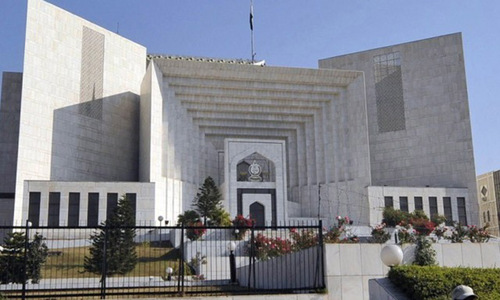Chaudhry Nisar Ali Khan’s remarks in the Senate on Tuesday about sectarianism in Pakistan beggar belief. Not only are they out of touch with reality, they are deeply offensive, and — given he is interior minister of a country involved in a battle against violent religious extremism — cause for extreme concern.
Responding to the senators’ objections about his meeting last October with the head of the Ahle Sunnat Wal Jamaat, Ahmed Ludhianvi, who had arrived as part of a Difa-i-Pakistan Council delegation, Chaudhry Nisar said that banned sectarian organisations could not be equated with banned terrorist groups.
The Shia-Sunni conflict, he added, went back 1,300 years. His words outraged members of the Senate, triggering a walkout by the opposition.
Examine: Perpetuating sectarianism
First, some basic facts. The ASWJ is a sectarian organisation that has been banned earlier, initially when it was called Sipah-i-Sahaba Pakistan and later when it re-emerged as Millat-i-Islamia. Then, as now, it was banned because it was actively involved in spreading hate against the Shia community, often resulting in violence and death.
It is also a fact that Lashkar-i-Jhangvi, which openly claims sectarian killings, is an offshoot of the SSP, its very name inspired by one of the group’s founders.
Also, the interior minister should know that the multifaceted religious extremism we are battling today first manifested itself in the form of sectarian violence when Pakistan in the ’80s, helped by Gen Zia’s ‘Islamisation’ campaign, became a proxy battlefield for the ideological war between Iran and Saudi Arabia.
The hardening of positions by organisations representing Shias and Sunnis, and the spewing of poisonous, takfiri rhetoric by some of the more rabid among them, led to further fracturing, including between Deobandis and Barelvis.
Inevitably, the infusion of funds — by individuals and foreign governments — into extremist organisations, and, regrettably, at one point the latter’s patronage by Pakistan’s security establishment in the name of ‘jihad’, raised the stakes even higher. The minorities were also swept up in this tidal wave of bigotry, paying the price in terms of their lives and their right to practise their religion freely.
So to suggest that sectarian violence is some lesser form of terrorism, which is what the interior minister’s words imply, is wrong: it is the very bedrock upon which terrorism of the kind we see in Pakistan is based.
However, appeasement of sectarian organisations has a long history here. It is rooted in the expediency of post-Zia governments, which allowed these groups to further weave themselves into the warp and weft of the political landscape even while some of them were banned from time to time to mollify international opinion.
It was not only military governments that kept religious extremists onside, civilian dispensations too did the same, courting their support in the electoral field and in parliament. That approach was always indefensible.
Now, turning our back on it is imperative for this country’s survival.
Published in Dawn January 12th, 2017
















































